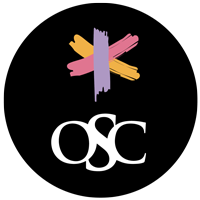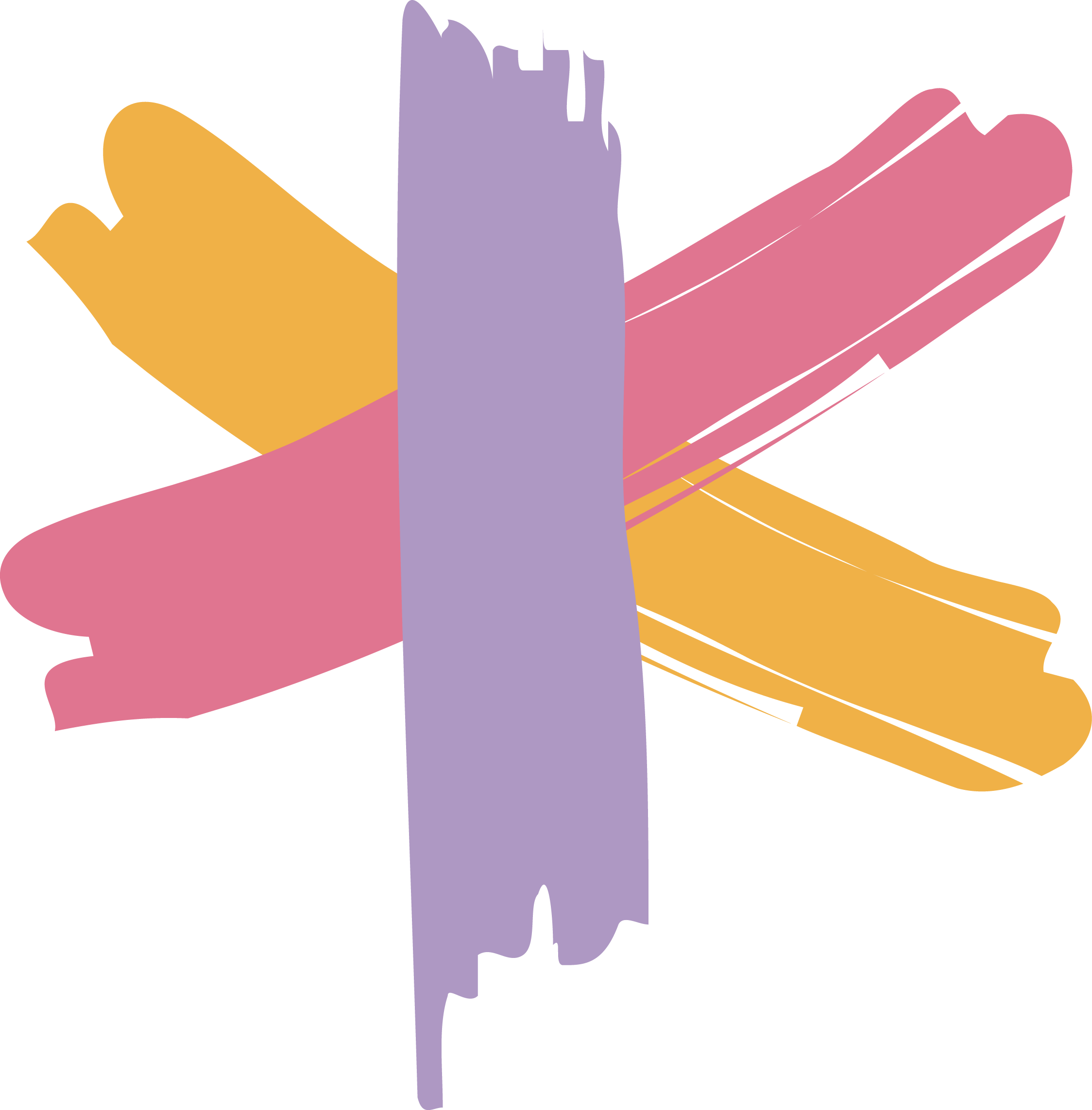Content and specific
training TO CONDUCT : LEADERSHIP, EXPERTISE, CHARISMA
This course provides a entire work on the development of key components needed to conduct an instrumental or vocal band:
GESTURE TECHNIC
GROUP PSYCHOLOGY
SELF-KNOWLEDGE
SCORES ANALYSIS
ORCHESTRATION AND ORGANOLOGY
Groups are formed according to the level of each participant (beginner, advanced, professional).
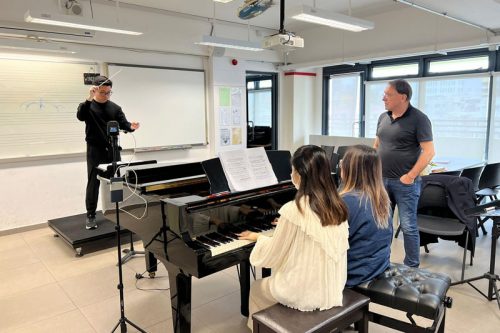
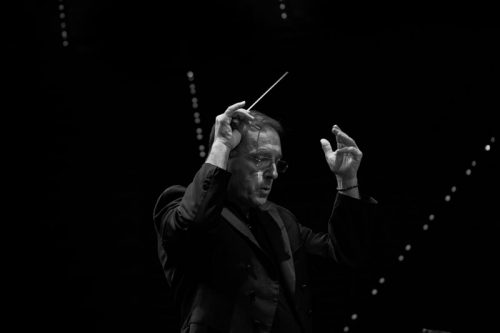
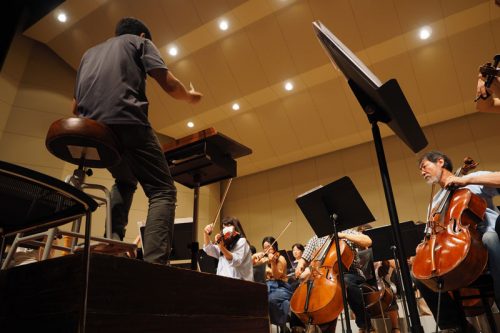

This training meets a wide range of needs, whether for conducting or learning to teach: a student orchestra (junior training, end-of-cycle orchestra, etc.), an instrumental class (instrumental ensembles for auditions and concerts), a chamber music class, a wind band, a symphony orchestra, a choir, a master class, a music education class, etc.
Training in conducting techniques is, above all, personalised work organised around a host of workshops, all equally fundamental: gestures, pedagogy, analysis, harmony, orchestration, human communication, etc….
The pleasure of learning to conduct is therefore first and foremost that of following a rich and varied training programme. It’s a time for self-discovery and for discovering the different elements that make up the richness of musical language. The approach and work involved in conducting imply a global vision of certain aspects of the study of music.
In the final analysis, it involves personal development in the broadest sense of the term: developing self-knowledge, communication skills, listening skills, charisma, understanding others, human dynamics, managing emotions, stage fright and artistic sensitivity ….
For this training, we ensure a constant balance between teaching theory and teaching practice.
Personalization of content
This course offers a job for every participantaccording to: their personal musical level, their human and musical experiences and, ofcourse, their own goals. After a personal review, the student and the teaching staff, prepare and manage his own learning during the course.
Training progress
It is requested to students conductors come with the complete equipment of several (minimum two) pieces for orchestra of choice (orchestration “homemade” or orchestration of publishers). Attention orchestral training is evolving every year, it is appropriate to provide equipment that is adaptable.
The work is a mixture of workshops, group lessons, individual work and orchestral rehearsals.

A sample day
The day’s program is suitable and available nightly depending on the evolution of the labor day, students are divided into groups that can be modified according to the evolution of trainees
8:30/9:30
Roundtable (analysis and balance sheet management work done the day before, prepare the work and objectives of the day …)
9:30/10:45
Basic workshops (gestural, harmony, orchestration, music history, organology or analysis)
10:45/11:45
Joint Workshop (choir, orchestra)
14:00/16:00
Basic workshops in groups (gestural applied with an instrumental ensemble, basic gestural, harmony, orchestration, analysis, or personal work)
16:30/18:30
Additional workshops(teaching, musical culture, psychology ..)
20:30/23:00
Orchestra rehearsal. Every evening trainees lead the orchestra which consists of all participants (training of 20 to 30 people, according to the inscriptions) in order to direct application of the preparation work for the day.
The workshops proposed bases are:
TACKLING A SCORE?
The Analysis: Consider its historical context, understanding and discover the structure of the work, define the style, interpretation and rehearsal work, harmonic analysis, thematic, orchestral, etc …
HOW TO HEAR A SCORE?
Harmony: Framing the Issues tones, modulations to understand the speech of a musical phrase, understand the relationship between singing, accompaniment, harmonic functions, etc …
HOW TO SUBMIT A SCORE?
The gestural: the role of gesture, the technical gesture, the limits of movement, etc …
HOW TO RING A SCORE?
Orchestration: Know the instruments,stamps, writing techniques for orchestra, teaching means to advance his musicians, etc …
The workshops
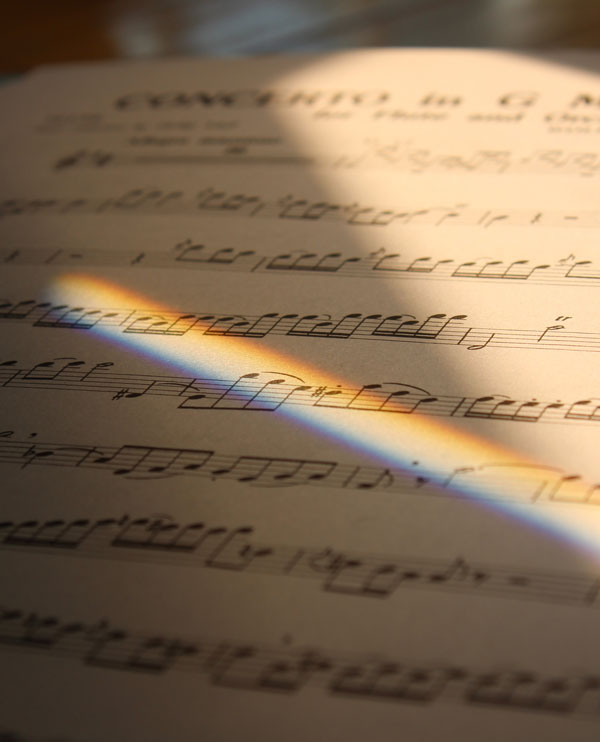
RELATED MUSICAL WORKSHOPS
In addition to this work, students will have music workshops annexes that enrich their vision and role of musician.
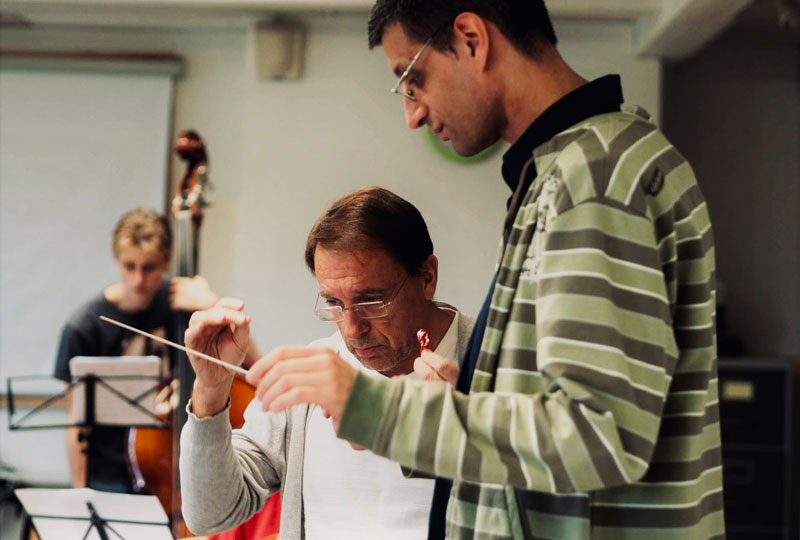
MUSICAL CULTURE:
Listen and know the styles, eras and composers that have marked the history of music.
PEDAGOGY
Addressing bases on education because a good conductor must also be a good teacher.
PSYCHOLOGY
Understand the various factors of human behavior (emotion, fright, authority, listening, etc …) that is found in the work of the conductor.
COMPUTER-ASSISTED ORCHESTRATION AND MUSIC WRITING WORKSHOP.
Each trainee brings their own laptop (to work on Sibelius, Finale and Musescore).
